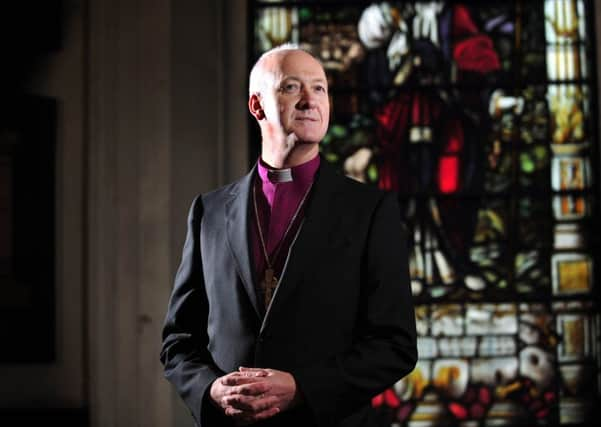Nick Baines: Dignity should define Brexit language


I accept that this is almost an existential question – challenge, even – but as we debate the legislative detail, we must not lose sight of the point of it all.
Existential questions can’t be determined by statute, but the shape of statute speaks loudly of what we think our society should be for, and for whom.
Advertisement
Hide AdAdvertisement
Hide AdThis is why debate about discretionary powers of Ministers to make laws with equivalent force to primary legislation is of such importance.
When such powers are so wide that the House of Lords is asked to leave to the judgment of Ministers the meaning of such terms as “appropriate”, it is only right to ask for definition. After all, history is riddled with the unintended consequences of what might be termed “enabling legislation”.
But, let’s be honest, Brexit is technically so demanding and complex that, if I were Prime Minister, I would want the authority to deal flexibly with anomalies and technical weaknesses as quickly and smoothly as possible as the consequences of Brexit become known.
I understand the technical element of this, but this Bill goes beyond legislative technicalities and impacts strongly on constitutional arrangements and the balance of power.
Advertisement
Hide AdAdvertisement
Hide AdSurely, if “taking back control” by Parliament is to mean anything, it must mean refraining from bypassing the essential scrutiny that Parliament is privileged and required to provide?
Hard Parliamentary scrutiny might be inconvenient, but the long-term consequences of granting Ministers unprecedented powers (as set out in this Bill) must be considered as they will shape the deeper culture of our state and change our assumptions about democracy.
I think this suggests that, although any sane person will recognise the Government’s need to have significant powers to ensure that process (and legal certainty post-Brexit) is as smooth as possible, there must be limits to the use of such powers – or, as a colleague of mine put it succinctly and colourfully, we must avoid Brexit Britain turning into Tudor Britain.
Clearly, there is a balance to be struck here. I do not believe that this Bill, as currently formulated, achieves that balance; nor does it demonstrate that the genuine fears of constitutional experts and lawyers have been properly heard.
Advertisement
Hide AdAdvertisement
Hide AdI have two concerns about the culture in which this debate is being conducted in this country – looked on with incredulity by those looking at us from beyond these islands.
First, almost every paper, every debate, every statement about Brexit is clothed in purely economic terms. It is almost as if the economy were everything and economics the only good.
Secondly, the referendum tore off the veneer of civilised discourse in this country and unleashed – gave permission for, perhaps – an undisguised language of suspicion, denigration, hatred and vilification. To be a Leaver is to be narrow-mindedly stupid; to be a Remainer is to be a traitor. Our media – and not just the ill-disciplined bear pit of social media – have not helped in challenging this appalling rhetoric or the easy acceptance of such destructive language.
If this debate on Britain’s future is to have any lasting value, and not just undermine long-term relationships of respect and trust, then attention must be paid to the corruption of this public discourse. Politicians could begin by moderating their language and engaging in intelligent, informed and respectful argument that chooses to eschew personalised or generalised vindictiveness or violence.
Advertisement
Hide AdAdvertisement
Hide AdWe must not allow our body politic to be defined by Brexit; rather, we will need to transcend the divisions currently being forced by the terms of discussion. Peers have an opportunity to model good ways of disagreeing well that might encourage others that there is an alternative to a political culture that appears sometimes to have been reduced to an unbridled tribalism where the first casualty is too often the dignity of the other.
The Right Reverend Nick Baines is the Bishop of Leeds who spoke in the House of Lords debate on the EU Withdrawal Bill. This is an edited version.